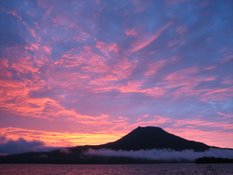RSS stands for "really simple syndication". At one point, David Hasselhoff's Baywatch was the most synidicated TV show in the world. It is my humble hope that my blog will be the most syndicated blog in the world. Hah! That's good for a joke. But, seriously now. If you'd like to be notified when I update this blog, there's a few things you need to do:
1. Use a browser like Apple's Safari, Mozilla's Firefox, or Microsoft Internet Explorer or an aggregator like My Yahoo or Google's Reader.
2. Click on the link to the right of this entry entitled, "syndicate this site (XML)"
3. Bookmark the page on your browse. If you are using an aggregatior, copy and paste the feed address into the field where your subscriptions are stored.
In the future, you should see a number next to the title of the bookmark, indicating the number of posts that you haven't seen. Forgive me if this doesn't work for you. I'm an English teacher, not a computer scientist! I know how to do it on my Mac, but I realize that everyone reading my blog isn't on a Mac (yet;).
Now to the entry I promised.
I went to the Osaka aquarium on Friday. Their presentation was unique: ecozones around the volcanic ring of fire in the Pacific Ocean. They've set up the museum so that one must see all of the exhibits before exiting. You ride an escalator up to the eighth floor and travel in a descending spiral to the first floor where you see the large central tank which houses their prized possession: a whale shark. I made sure to get an English audio tour so that I could appreciate the exhibits more.
The display gave the visitor an holistic view of life in the Pacific Ocean. Somewhere the brochure mentioned the Gaia theory of Lovelock. This makes connections between all lifeforms in a web of life. Although the much touted Whale Shark seemed smaller than advertised, at 1100 kilograms, I think that it was big enough!
 The Manta Ray was also fascinating with its loop-de-loops over the aerator. Was he getting air or plankton?
The Manta Ray was also fascinating with its loop-de-loops over the aerator. Was he getting air or plankton?I couldn't help but make comparisons between this aquarium and the one I know so well: the Monterey Bay Aquarium. My sister, brother-in-law, and aunt gave me a two-year family subscription to it so I could take all of my friends there. (Thanks again Jen, Dave, and Tina!) Their admission prices are about the same and you probably get more to see at the Osaka one. So on these facts alone, I could see why some study abroad students of mine at MIIS in February 2005 didn't like the MoBay aquarium. "Japanese aquariums are better" they said.
But what the MoBay aquarium had that I didn't see in Osaka (my Japanese is limited, but they seemed to give bilingual interpretive signs almost everywhere) was extending the facts and situation of the oceans into the family room and kitchens of visitors. Inspiring visitors to take action and change behaviors to save the oceans.
Before I went to Osaka, I happened to read an article about whale burgers in Hokkaido and dolphin hunting in Wakayama (near Osaka). I admit that different cultures have different values towards man's relationship with nature and by extension animals. But when the entire world except Japan recognizes the moratorium on whaling, that strikes me as something different than cultural values. Is one's village annual harvest of over a hundred top predators sustainable regardless of being ethical or unethical?
 This is where a museum can make a difference because it gives an in-depth experience and can influence large numbers of visitors to change the kinds of fish they eat. And these are the same people who can influence public policy. Aquariums shouldn't be about preserving an example of a species to ward off extinction. They can serve a purpose by connecting people with the natural world.
This is where a museum can make a difference because it gives an in-depth experience and can influence large numbers of visitors to change the kinds of fish they eat. And these are the same people who can influence public policy. Aquariums shouldn't be about preserving an example of a species to ward off extinction. They can serve a purpose by connecting people with the natural world.What do you think? I know there's plenty of treaties that the USA is the only one not to sign. Perhaps it thinks there's some competitive advantage to holding out. That seems like an expression of economy, not culture. But I could be wrong.





No comments:
Post a Comment